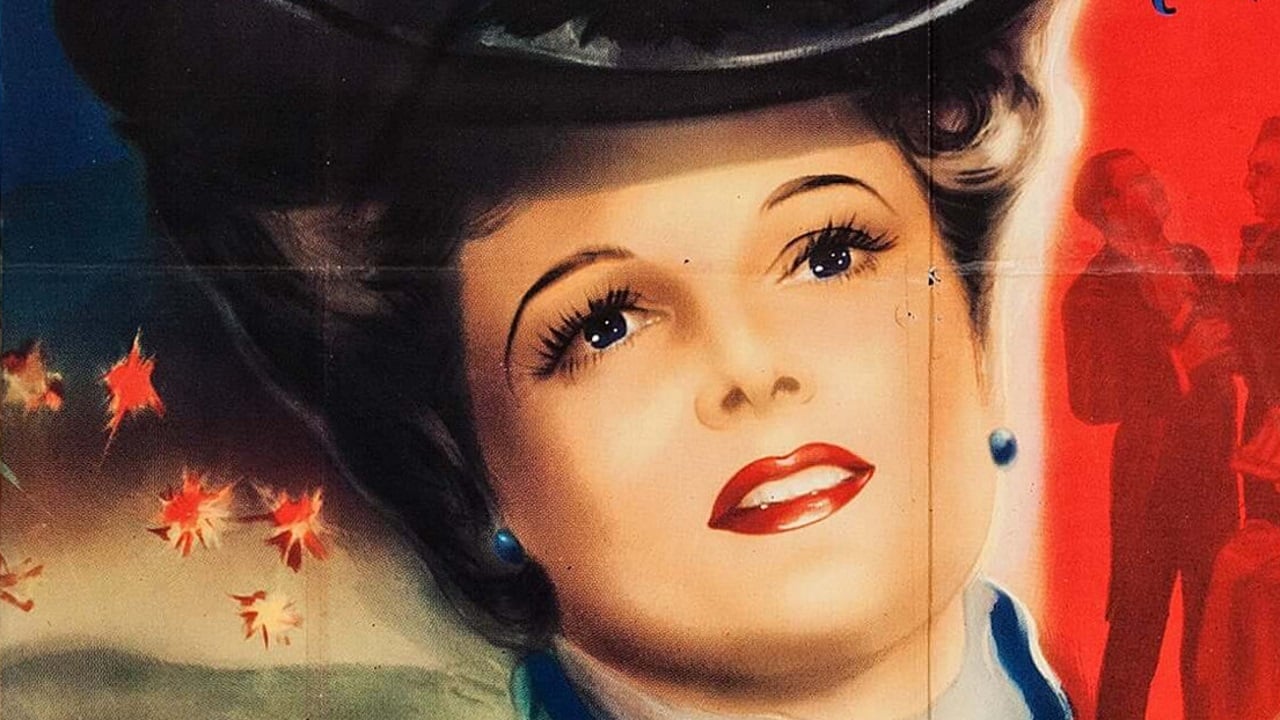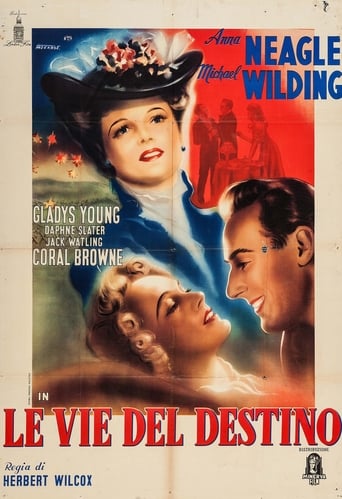

It's Noel Coward's "Cavalcade" with 15 years added to it but without Noel Coward, and it's almost one war too much: the second world war passes by with a sigh, and they almost don't notice it.What do you have instead of Noel Coward? Actually a lot of things. Formost is the brilliant musical score, dominated by Tchaikovsky's Pathétique symphony, which you first hear and attend together with Queen Victoria (who sleeps through it, and you only see her from the rear,) and which forms a kind of morosely moody background to the whole story. The score is actually composed by Anthony Collins, one of Britain's foremost conductors at the time, most famous for his epoch-making readings of Sibelius, and I didn't know he was a composer himself as well. The music is brilliant och fluent throughout, with excellent renderings of Strauss and the tunes of the periods. Michael's sister Mary once starts playing "On the Blue Danube" on the piano, and the story makes it develop into full orchestra, which is marvellously done.Michael Wilding always makes an uplifting appearance, and Anna Neagle dances surprisingly well - her voice and mode of singing is perhaps a bit outdated today, but they both age admirably well. There are some very heart-rending scenes between them, especially during the first world war, but they dominate the film completely. The only other dame to importune is swiftly disposed of and is never heard of again.What you lack is the wit and overwhelming pathos from Noel Coward's timeless film. There is practically no pacifism here at all, which is the eloquently dominating element of "Cavalcade".So this is not a great film, but still very well worth watching and enjoying, especially for the wonderful rendering of the times before the first world war. There is no end to the generous lushness of the scenery here, which makes it very convincingly super romantic.During the 1929 crisis there is an episode when the family is forced to sell their home, and they get a good price for it. This is pointed out by critics as a weak point, as they in the last minute decide not to accept the offer, but it's actually the contrary: a very important point made by Kathy, as she prefers enduring the ruin and keeping the family and home against any odds, even if they are impossible, which by challenging the impossibility they manage to overcome. It's perhaps the most important point of the film, underlining the paramount importance of keeping the family together by its main uniting factor the home.
... View MoreAnna Neagle plays a lovely Irish colleen the daughter of maid Ethel O'Shea who works in the house of The Courtneys Of Curzon Street. Anna works there as well and around the turn of the last century she falls in love with Michael Wilding who is the heir to the place and about to embark on an army career with service in the Boer War.Naturally this raises some eyebrows and The Courtneys Of Curzon Street deal with class differences, not as pronounced in America as across the pond back in those days. Which might have lessened the box office potential here in America as I'm sure many in the audience just didn't get it.Not that this is a bad film by any means, in fact it is probably one of Anna Neagle's best films. Anna who endures a long separation puts herself on stage and we get to see her sing and dance. Interesting how the people who snubbed her before when she becomes a star they kowtow pretty good to Lady Courtney.The film covers 45 years of British history from the Boer War to the end of World War II and the travails and heartaches of the Courtney family is set against the backdrop of the real events of the time. One thing that was fascinating is that in the beginning Neagle has a full blown Irish brogue, but as the years go by she starts affecting distinct upper class speech. By the end of the film you would hardly recognize her humble origins.The Courtneys Of Curzon Street bears no small resemblance to Noel Coward's Cavalcade, but it hardly has Coward's wit. Still you'll find it an entertaining film and an entertaining social history.
... View MoreAs you will surmise from the synopsis, this 1947 Wilding/Neagle film portrays the life of a well-to-do family, the Courtneys, from 1899-1945.This covers the period in English history from the Boer war, first and second world wars and how it affects the military Courtney family, their son, grandson and the women who marry into the family.Dame Anna Neagle doesn't consistently maintain her Irish colleen accent from the humble Irish maid in 1899 to when she becomes Lady Courtney.Her accent is rather the product of the 1930s drama school of stock Irish accents, actresses for the use of.It is rather a relief to us all when she can dispense with it and adopt her usual manner of speaking as it looks rather an effort for her.The film does however give Dame Anna the chance to show off her skill at dancing and reminded me a little of Noel Coward's "Cavalcade" as a troop of vignettes through a family history.As for Michael, I was humorously intrigued how he managed to retain his grand house in Curzon Street W.1. and still live in the grand manner, despite "losing his shirt" as a stockbroker in the great credit crash of October 29th 1929.He told Anna he would have to sell the house to pay off creditors - a weakness in the story.One similarity with "Piccadilly Incident" (1946) was that in both films there was an enforced separation of Michael and Anna, the former through war and this film through social prejudice.The present film has a rather better outcome for Dame Anna.It is also quite a long film at 111 minutes and not easy to find in the UK.I had to win it from a Canadian rare dealer on eBay.Lovers of the many Wilding/Neagle films will be absorbed by this historical canter through the Courtney clan.I rated it 7/10.
... View More